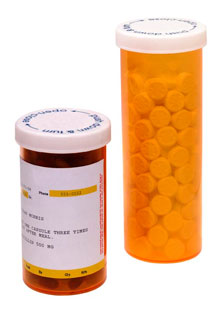Imperfect Copies? The Effectiveness of Generic Drugs

Photo: © 2008 Jupiterimages Corporation
Doctors, drug companies, and the Food and Drug Administration have assured us that generic drugs are identical to their brand-name counterparts. But some experts feel otherwise.
Generic drugs can be a blessing. Insurance companies and patients eagerly await their arrival (when the patent expires on the original drug) and the savings they will bring. But new evidence suggests the knockoffs don't always match the originals. Last year, pharmacologist Joe Graedon, co-founder of the health information service People's Pharmacy (Peoples Pharmacy.com), received a flood of mail from visitors to the site reporting relapses in depression after they'd switched from Wellbutrin XL 300 to the generic drug Budeprion XL 300. "We got hundreds of letters," Graedon says, "and they were all very similar: 'I'm really sad, I'm crying at the least little thing, and I'm starting to seriously consider suicide.'"
Graedon asked the independent testing group ConsumerLab.com to analyze the two drugs, and the results showed that Budeprion dissolved much more quickly in a test solution than Wellbutrin. "We started talking to the FDA, and they acknowledged that, indeed, the generic did get into the bloodstream faster," says Graedon. "It reached maximum concentration in two to three hours versus five to six for Wellbutrin." And that meant it also cleared out of the bloodstream faster. In another example, ConsumerLab found differences between the blood pressure drug Toprol XL and a generic version. "I hadn't realized generic drugs did not have to perform in the same way," says Graedon. But in fact, the FDA's rules do not require generic drugs to undergo clinical testing. Instead, manufacturers submit evidence that the generic is essentially the same as the name-brand product, says FDA spokesperson Sandy Walsh.
Although the generic pill contains the same chemical in the same dose, Graedon explains, it still may not be identical. Some drugs use methods for timed release that may be under patent protection. As a result, the generic versions must develop their own methods for timed release, which may not work the same way. The FDA claims the differences aren't significant. However, in September the agency announced it would conduct a study in an effort to determine what's causing all the complaints.
Graedon is pleased. And though he isn't urging consumers to avoid generics, he does advocate vigilance in the areas detailed below.
Track Your Stats
Record any lab results or hard numbers related to your condition, such as cholesterol or blood sugar levels. If you're on a drug to control hypertension, maintain a log of your blood pressure readouts. If it's a thyroid medication, compare your hormone levels (from lab tests) on the generic versus the name-brand drug. If you note a change after making a switch, consult your doctor.
Monitor How You're Feeling
Take note of your subjective symptoms on the generic drug. If it's an antidepressant, has your mood changed? If you're taking a thyroid hormone, have your energy levels shifted? Does the generic work as well as the brand-name drug to control symptoms (like fatigue) that don't show up in a lab test?
Watch for Side Effects
A drug's insert information lists known side effects. Be on the lookout for these and any unexpected ones that might arise, such as headache, dizziness, or nausea.
Be Your Own Guinea Pig
When you switch to a generic drug, keep a few doses of the name-brand drug around (or ask your doctor for a free sample). If you suspect that you're getting a different response on the generic, switch back temporarily and see if the problem goes away. For instance, if you notice you're not falling asleep as easily with the generic sleeping pill as you did with the name brand, switch back for several nights and see what happens.
Report Problems to Your Doctor, the FDA, and People's Pharmacy
Alert your doctor if you detect any discrepancies or if your mood or health undergoes a significant change. Once you sort out the problem, report it to the FDA's MedWatch program (888-INFO-FDA or FDA.gov/medwatch. You can find out what other patients have said about the generic drug you're taking and report your own experiences at PeoplesPharmacy.com where Graedon compiles complaints about drugs (both generic and name brand).
As a reminder, always consult your doctor for medical advice and treatment before starting any program.



